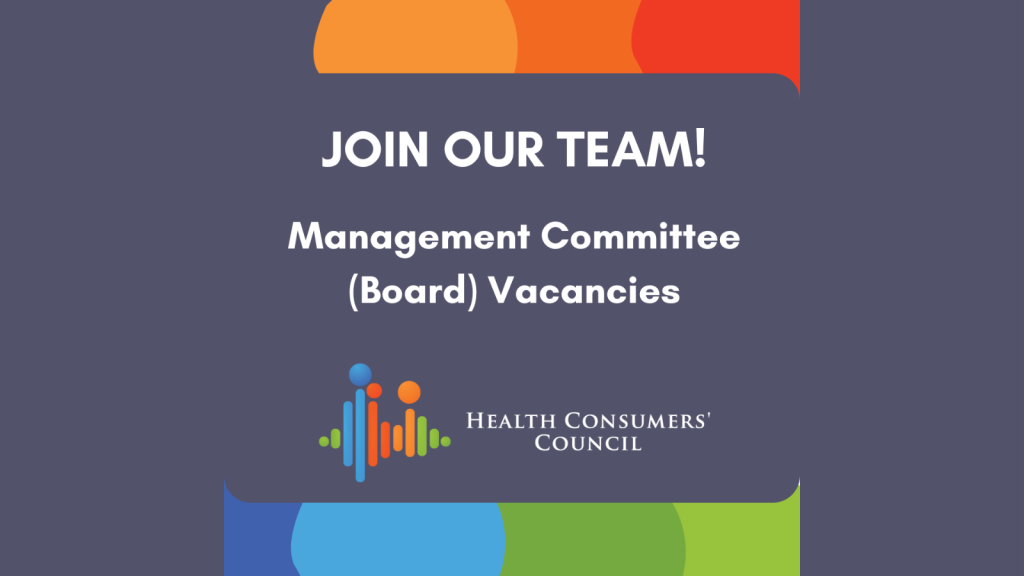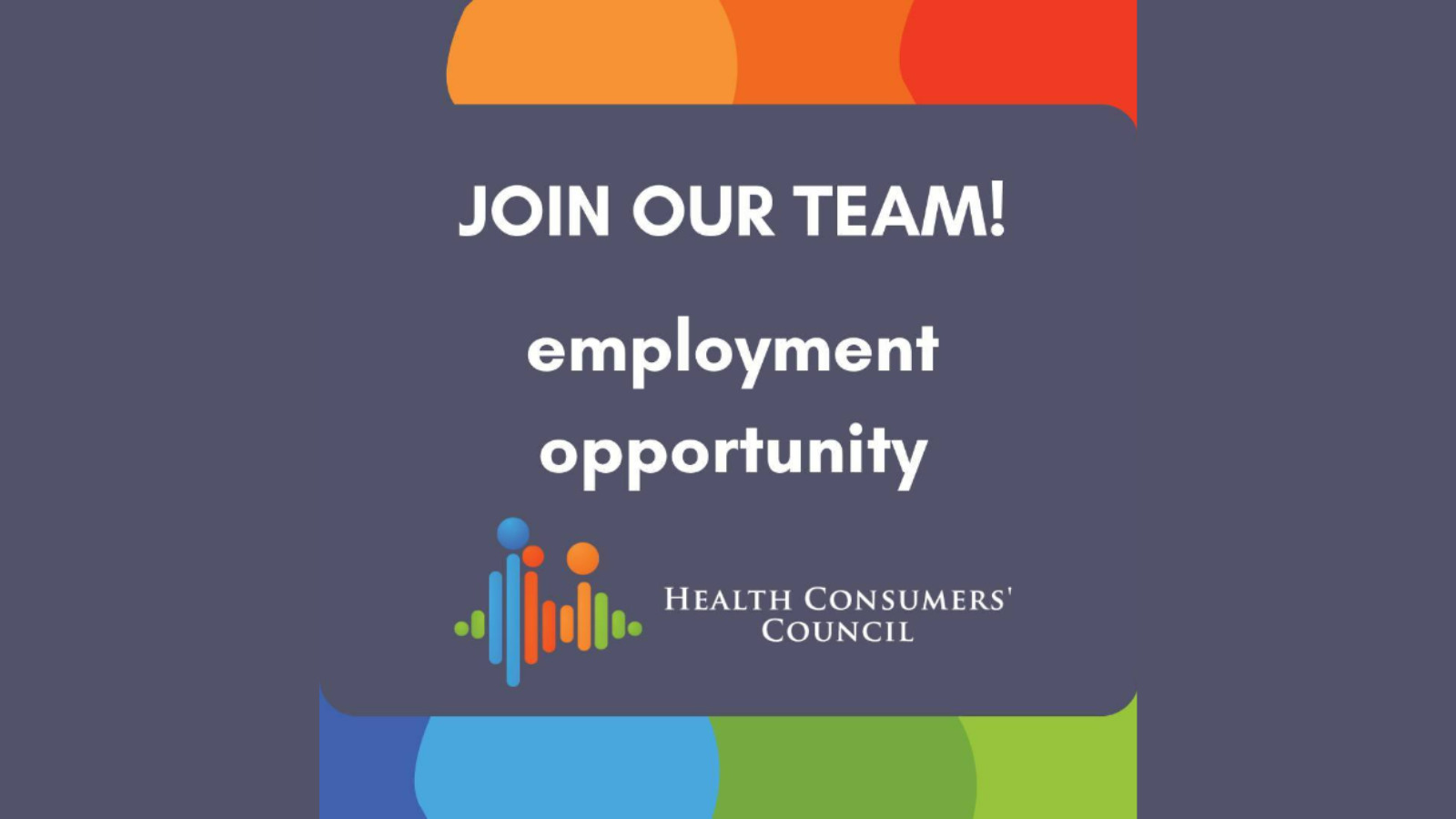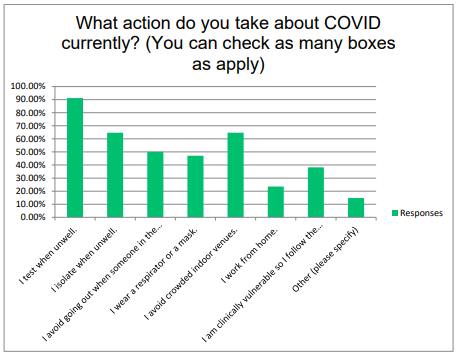Advocacy Program Officer (full-time role, fixed term for 2 years with the possibility of extension)
SCHADS L4, $43.08-$46.35/hour plus super
Can you help us champion health rights for everyone in the WA community?
We are seeking an experienced database administrator with an eye for detail to join our individual advocacy team on fixed-term contract for 2 years. There is a possibility this role could be extended, subject to funding.
It can be difficult for consumers and patients to navigate the Western Australian health system, or to give feedback if they are unhappy with any aspect of their healthcare experience. This role supports the Advocates who support health consumers to have their voice heard within the WA health system, by ensuring high quality data collection and reporting, and providing general program support.
The role offers:
- The opportunity to be a part of a workplace that is driven by championing consumer health rights
- A welcoming, inclusive and supportive workplace, where everyone is encouraged to bring all of themselves
- A competitive not-for-profit annual base salary with salary packaging
- Flexible working arrangements including the opportunity to work from home occasionally
- Additional leave entitlements
About you:
- You’re looking for a role where you can apply your database administration and management experience to drive social justice
- You’re interested in the health system and care about people’s experiences of it
- You thrive working in a fast paced agile environment working across multiple projects
Position Overview
This position is responsible for providing program support across HCC’s Individual Advocacy program, in particular ensuring that we continue to maintain the highest standards of data integrity and knowledge management through the use of our CRM (customer relationship management) database. This role is key to ensuring high quality data and information to support accurate reports including identifying themes from consumer queries to enable us to champion systemic change.
The role also includes general program administration, responding to advocacy queries by telephone and email, and assisting with reception when required.
A typical week might see you:
- Contacting consumers from the advocacy waitlist as a first point of contact
- Extracting reports from the CRM database to inform funding reports or grant applications
- Making changes to the CRM database to enable high quality and consistent data collection and management
- Supporting team members to implement new data management practices
- Working with consumers to complete Freedom of Information requests and consent forms
Click here to see the job description for a full outline of responsibilities for the role.
Diversity and inclusion
At Health Consumers’ Council we know that strength comes from diverse perspectives being at the table. We particularly encourage applications from Aboriginal and Torres Strait Islander people, people from culturally diverse backgrounds and identities, people with disability and LGBTIQA+ community members.
Selection criteria
Essential
- A minimum of 3 years’ experience in a similar role, including database administration
- Well-developed analytical skills, with the ability to extract, manipulate and analyse quantitative and qualitative data
- Well-developed interpersonal and verbal skills, with a demonstrated ability to support colleagues to implement new ways of working
- Excellent organisational skills, with high attention to detail and the ability to manage and prioritise deadlines and own workload with limited supervision
- Demonstrated ability to use initiative and solve problems within own area of responsibility
- Willing and able to work flexibly in a small team and “muck in” as required
- Be adept, or be able to quickly become adept in, a range of office software programs including Microsoft Office 365 Suite, relational databases such as MS Dynamics, and project management software
Desirable
- Background in data visualization and reporting
- Change management experience and knowledge
- Ability to develop and maintain productive relationships with diverse internal and external stakeholders, and navigate difficult conversations when required
To apply for the position
Send a cover letter of no more than two pages addressing the selection criteria, along with a current resume outlining your work experience, skills and any relevant education or training to Fiona Leece our recruitment partner at jobs@capitalhr.com.au clearly stating which role you’re applying for. Applications that do not address the criteria may not be considered.
- The closing date for applications is 8am on Monday 2 December 2024
If you require any adjustments to submit your application or wish to have a confidential discussion about the role, please contact Tania Harris, Engagement and Advocacy Manager on (08) 9221 3422 (Ext 2) or email Fiona Leece our recruitment partner at jobs@capitalhr.com.au
To see other jobs we’re advertising click here







